Victoria Police Chief Commissioner Graham Ashton warns of hundreds of potential terrorists in Australia
Bourke St terrorist Hassan Khalif Shire Ali was radicalised by his community in Melbourne, Prime Minister Scott Morrison has warned, as he urged Islamic leaders to “weed out” those with radical beliefs.
Law & Order
Don't miss out on the headlines from Law & Order. Followed categories will be added to My News.
UPDATE: Bourke St terrorist Hassan Khalif Shire Ali was radicalised by his community in Melbourne, Prime Minister Scott Morrison has warned, as he urged Islamic leaders to “weed out” those with radical beliefs.
Mr Morrison, who visited Bourke St this morning to pay his respects, said Shire Ali’s radicalisation was not an issue of migration, given he grew up in Melbourne.
He said Shire Ali’s “hateful views and beliefs” came from “the community he was living in and the people he was speaking to”.
BOURKE ST TERROR ATTACK; PUSH TO DEPORT EXTREMISTS
WHY ARE WE GIVING TERRORISTS REFUGE?
“I’m calling for us to stand up to it even more and root this out of religious Islamic communities in Australia so the fundamental extremism, violent extremism, the hate, can take no place in these peace-loving communities,” Mr Morrison said.
He warned that Islamic leaders who “stick their head in the sand” were “giving people an excuse to look the other way” when confronted by extremist views.
“You’ve got it to call it out, because it will take root and it will take root with your sons and daughters, with your friends, with your uncles, with your cousins, and it will infest and it will lead to the sorts of things that we have seen here on Bourke Street and I don’t want to so see that happen ever again,” Mr Morrison said.
It comes as Victoria’s top cop says there are hundreds of radicalised potential terrorists who aren’t being fully monitored but who have the propensity to commit something like the latest Bourke St atrocity.
Chief Commissioner Graham Ashton revealed counter-terrorism agencies would need thousands more officers to physically and electronically watch every suspect.
He said the stretched agencies only had the manpower to fully monitor the highest risk extremists among more than 400 potential terrorists on the watch list.
In a wide-ranging interview with the Herald Sun, Mr Ashton also revealed:
HE would back any moves by the Federal Government to introduce new laws to make it easier to deport potential terrorists.
FOREIGN fighters returning to Australia after joining Islamic State in overseas war zones are a looming terrorist threat to Victoria that will need resourcing to counter.
HE hopes the Morrison Government’s legislation to give law enforcement agencies new and greater powers to access and decipher encrypted messages will be passed as it is a much needed tool to prevent terrorist attacks.
BOURKE St Islamic terrorist Hassan Khalif Shire Ali had a crude incendiary device with him that he tried to use to blow up his vehicle with the aim of killing and maiming pedestrians.
POLICE have established links between Shire Ali and other radicalised Islamic extremists that he can’t detail due to a court suppression order.
CONFIRMED Shire Ali had communicated online with notorious now dead jihadist Khaled Sharrouf, although at this stage it appears that contact was minimal through Facebook.
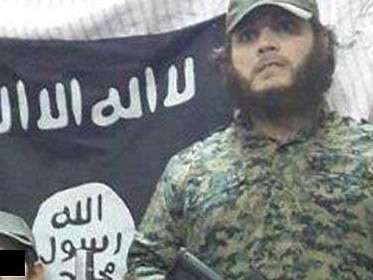
A DECISION he made soon after becoming chief commissioner in 2015 to retrain all 14,695 sworn police to use lethal force — rather than the previous cordon and contain policy — when dealing with terrorist and siege situations had paid off as it resulted in the first responders to Bourke St being able to end the terror threat in under two minutes.
THE two police officers who tackled Shire Ali in Bourke St last Friday deserved bravery awards and would probably get them “because they did exactly as they are trained to do”.
Mr Ashton on Monday rejected claims by Shire Ali’s family that the Bourke St incident wasn’t terror related but was a cry for help from a mentally ill man.
“It was clearly a terrorist attack, we’ve been treating it as a terrorist attack since Friday night,” he told the Herald Sun.
“Of course mental health is a big issue across society and we do have strong linkages between, over time, terrorists and mental health — but if someone has a mental health issue it doesn’t mean it’s not a terrorist attack.”
Somalian-born Shire Ali’s passport was cancelled in 2015 over fears he planned to become a foreign fighter for Islamic State in Syria and ASIO was also tracking his movements due to his behaviour and associations with terror suspects.
But he wasn’t under constant physical or electronic surveillance at the time of his Bourke St attack on Friday — during which he murdered Pellegrini restaurant legend Sisto Malaspina and stabbed two other victims before a police officer shot him.
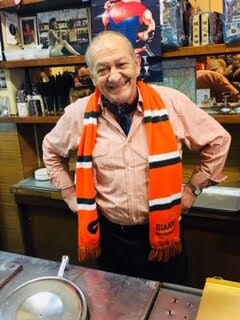
Asked how many others like Shire Ali there were in Australia — people who counter terrorism agencies were concerned enough about to put on the watch list but who are no longer under constant physical and/or electronic surveillance, or never have been — Mr Ashton said “hundreds”.
“There are hundreds of persons of interest that both us, the Australian Federal Police and ASIO constantly have to assess and look at, hundreds of them” Mr Ashton told the Herald Sun.
“That’s part of that ever present risk that we carry.”
Mr Ashton said that risk meant it was inevitable there would be terror attacks in Victoria.
“There is an inevitability about that when you have so many people to cover and often these attacks can occur very quickly now,” he said.
“It’s not like 10 or 15 years ago when you would have a plot, you would have plotters and you would have weeks go by where plots would develop.
“These days it’s much more one individual, maybe two individuals, developing things very quickly and that makes that intelligence work even harder.”
Asked how many terror suspects on the watch list were actually physically and/or electronically monitored around the clock, Mr Ashton said he couldn’t say for operational reasons.
“We don’t talk about the exact numbers because we don’t want to be too educative to some of those people,” he said.
“But obviously we don’t follow 400-odd people 24 hours a day, but the ones that present the highest risk we have a good coverage of them.”
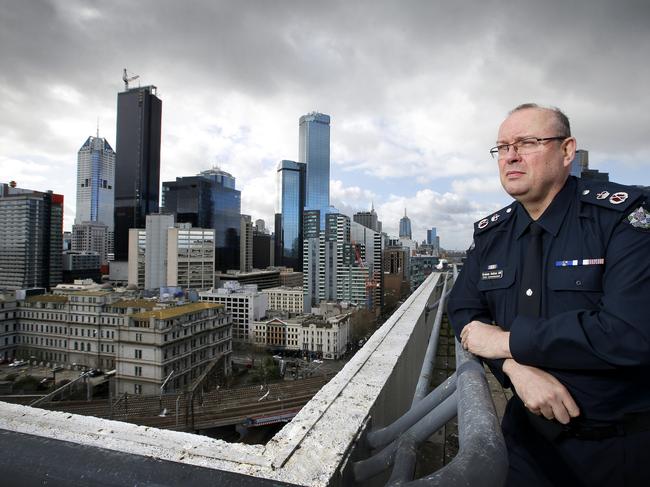
Mr Ashton said there were hundreds of persons of interest that aren’t in the high risk category and any of them could “quickly do something”.
Asked how many extra counter terrorism officers would be needed to constantly monitor all 400 terror suspects, Mr Ashton said “you would need thousands”.
He said demands on police to do other things meant those thousands were unlikely to become available.
“We have to police the community right across Victoria,” Mr Ashton said.
“There is a family violence incident every seven minutes, then there are hundreds and hundreds of arrests made on a weekly basis.
“We have a couple of hundred thousand interactions with the community a day so the work of policing has to continue.
“Counter terrorism work is a very important part of it, but it’s not the only part of it. So you are always balancing your resources between all those areas.”
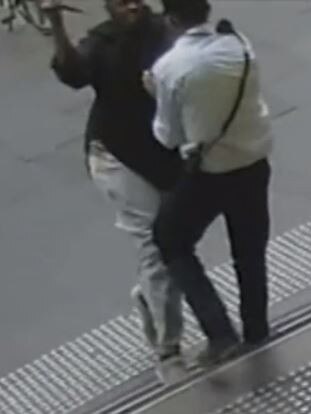
Mr Ashton said Shire Ali’s terrorist attack in Bourke St was a “sobering reminder” of how important it is that police get extra powers to access and decrypt messages as terrorists and other criminals were increasingly using encrypted messages on social media in the hope of avoiding scrutiny.
“Those powers, the access to encrypted data powers, that the government is trying to get in Canberra at the moment, we have been pushing that pretty heavily behind the scenes,” he said.
“We are very supportive of those powers going through.
“It’s important because any bit of intelligence that might suggest there is a risk, we need to know about.”
Mr Ashton said police hoped to know more about Shire Ali’s motivation for the attack, what he planned to do and whether or not he was influenced by others, in Australia or overseas, once they have extracted the contents of his seized electronic devices.
“It’s early days in the interrogation of those devices so it might be a number of days until we understand whether there was anything being pre-planned or, indeed, whether there was any incitement from overseas,” he said.
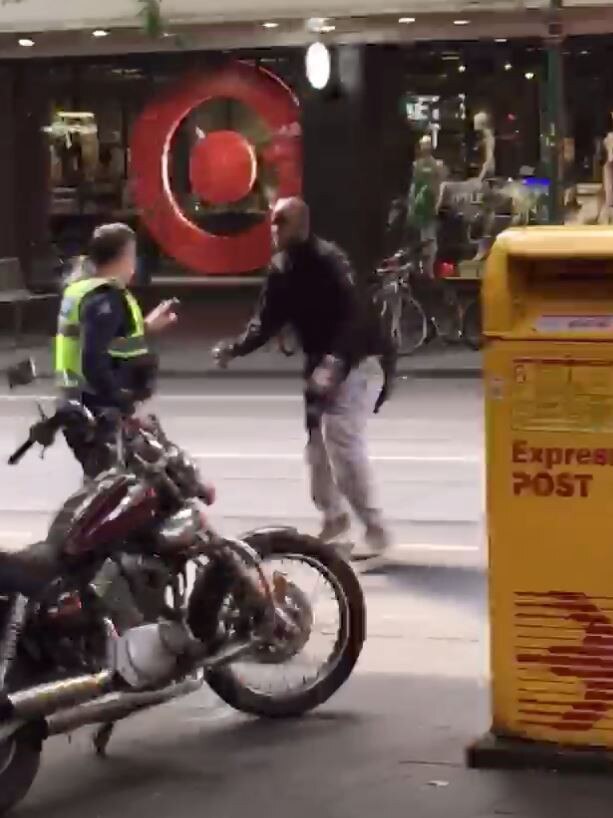
Mr Ashton revealed Shire Ali had a crude incendiary device with him that at this stage looked like it consisted of petrol soaked rags in a plastic container that he intended using to blow up his vehicle to kill and main pedestrians.
“The CCTV cameras first picked him up on the corner of Exhibition and Flinders, heading north, travelling pretty slowly in the traffic,” he said.
“He went up Exhibition, turned left into Bourke, again the traffic was solid. He went along Bourke over Russell and has just sort of steered across to what was a gap and got it up on the footpath and stopped there.
“I think he was looking for a place he could ignite the car to get some pedestrians.”
Mr Ashton said he was waiting for more information from forensics on the device Shire Ali used to start the fire in his vehicle.
“There was something that was in there that he had set up, like rags and petrol, something he had in a plastic container,” he said.
“He’s gone in there with the intent of committing a terrorist act.
“He’s had the gas bottles with the valves open ready to go and he’s tried to ignite a fire in the car to cause an explosion.
“He then got out and has attacked people with fatal consequences and it looks like that’s what he planned to do.
“And he has executed that plan, albeit the explosion didn’t occur as he perhaps had hoped.”
Mr Ashton praised the two police who ended Shire Ali’s terrorist attack within minutes of arriving on the scene.
“They did exactly as they are trained to do,” he said.
“Bearing in mind they don’t know what they are dealing with initially, they don’t know it is a terrorist attack.
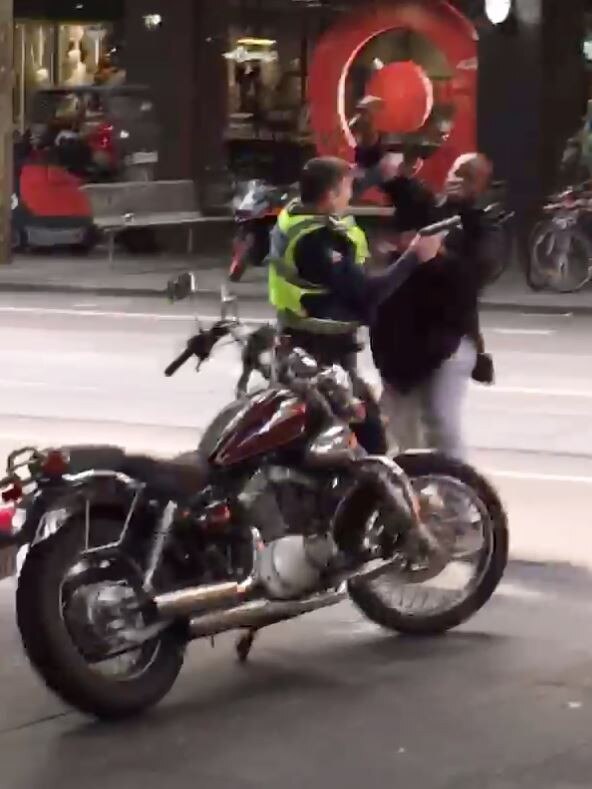
“They are dealing with someone who has hopped out of his car and is coming at them and they are trying to communicate with him to see what’s going on and at the same time he’s then brandishing a knife, trying to get at them with a knife.
“So they have done what their training has told them to do and once they are satisfied the guy is out for blood here, that he represents a danger to life, they have done the right thing, absolutely.
“I think they did very well. I have spoken to them on the weekend and I have told them that.
“It’s the training we have been providing in active shooter situations. Police understand where the trigger point is, for want of a better term, for when you don’t cordon and contain and you have to actively resolve it then and there.
“They certainly did a textbook response on that.”
